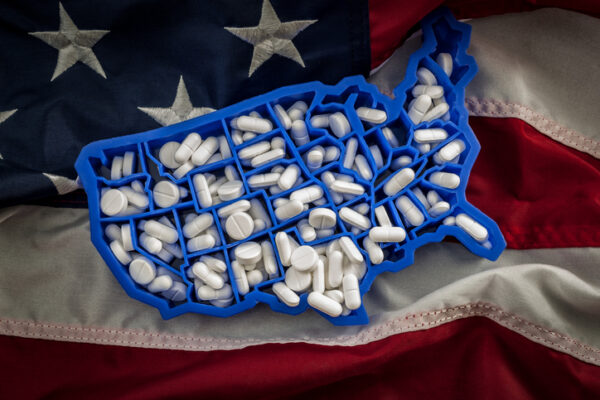
In the 1990s and early 2000s, as heart disease became a major public health concern, millions of Americans voluntarily trained to administer cardiopulmonary resuscitation or CPR. In fact, the American Heart Association still trains more than 12 million people each year in this life-saving procedure.
Today, we are in the throes of an equally alarming public health crisis—the deadly opioid epidemic. With tens of thousands of American lives lost each year to drug overdose, it’s critical that we begin training Americans to administer Narcan (naloxone), just as we did with CPR, to help save the lives of our neighbors, family members and friends.

As Healthcare and Biopharma Companies Embrace AI, Insurance Underwriters See Risks and Opportunities
In an interview, Munich Re Specialty Senior Vice President Jim Craig talked about the risk that accompanies innovation and the important role that insurers play.
Issuing the first Surgeon General’s advisory in 14 years, Surgeon General Jerome Adams has urged every American to carry and be trained to administer this life-saving drug. In a recent interview with NPR, Adams said unequivocally, “We should think of naloxone like an EpiPen or CPR. Unfortunately, over half of the overdoses that are occurring are occurring in homes, so we want everyone to be armed to respond.”
While I encourage everyone to take a CPR course, performing CPR properly can be challenging for those who do not do it routinely, especially in a moment of crisis. In addition, only about 45 percent of all victims survive even with CPR outside the hospital.
In contrast, administering naloxone (Narcan) is relatively easy for non-medical personnel, and giving it quickly after an opioid overdose rapidly reverses respiratory depression – the primary cause of death. It is extremely safe, effective, and works in seconds. There are two simple delivery mechanisms currently available in the U.S. – an intramuscular auto-injector (like the EpiPen), and a nasal spray. Today, 49 of 50 states have standing orders allowing anyone to buy and administer Narcan without a prescription. As the drug epidemic has grown, Narcan has saved an untold number of lives, including over 17,500 cases in New York alone last year.
Who exactly should carry Narcan? The same people who should carry an EpiPen: anyone who’s around someone who might need it. And, in today’s opioid crisis, that’s nearly everyone.
Certainly, employers and school administrators should have staff trained and supplied with Narcan. According to the Bureau of Labor Statistics (BLS), overdose deaths at work from non-medical substance use jumped by at least 38 percent annually between 2013 and 2016. Some school districts are making it mandatory for all public schools to stock naloxone.
While there’s some controversy over making Narcan so readily and widely available, the reluctance is based mostly on the stigma associated with addiction and mental health issues, and an overall lack of understanding about how addiction impacts an individual and the community. The truth is, addiction and overdose can affect anyone. It doesn’t discriminate based on income, gender, ethnicity, or background.
It also doesn’t help that many drug users don’t realize the risk. Often, heroin or cocaine are laced with the deadly drug fentanyl, which is 100 times more potent than heroin, and drug users may have no idea. With fentanyl in the picture, “You’re injecting yourself with a loaded gun,” according to Tim Pifer, director of the New Hampshire State Police Forensic Laboratory.
That’s why we need to be prepared. Every day, more than 130 people in the U.S. die from opioid overdoses, which killed more than 47,600 people last year alone. This is an urgent problem, one that’s killing our neighbors, our friends, our family members, and our communities.
But we can help one other. Go to your local pharmacy and ask for a Narcan kit. It is covered by most major insurances. The pharmacist will train you in proper administration – it’s easy, and there’s very little risk of doing it wrong. Carry it with you at all times and hope you never have to use it. But know that you could be the difference between life and death for someone if you do.
Photo: Moussa81, Getty Images








